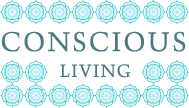Your health determines how you participate in life and how established you are in your purpose.
When you are in a complete state of health, you can:
- fulfil your daily responsibilities and long-term purpose,
- establish and maintain your livelihood and security,
- enjoy the fruits of your labour and,
- ultimately move towards attaining freedom from fundamental human suffering.
Ill health, disease, and suffering become obstacles to fulfilling these core aims of life.
When you are in a complete state of health, you can:
- fulfil your daily responsibilities and long-term purpose,
- establish and maintain your livelihood and security,
- enjoy the fruits of your labour and,
- ultimately move towards attaining freedom from fundamental human suffering.
Ill health, disease, and suffering become obstacles to fulfilling these core aims of life.
Prevention is better than cure. This is not a new saying or concept, yet many wait for a diagnosis before addressing their basic health needs. It is often more difficult, time-consuming, and costly at that stage. On the other hand, taking the time to maintain your health and well-being daily minimises your chance of getting sick in the first place, which in turn saves you time, money, and, most importantly, suffering.
What is preventative healthcare?
Preventative healthcare is the application of specific health measures to prevent illness. Daily, this includes looking after the body and mind through good sleep, diet, and lifestyle habits. The advancement of medicine and technology can also include regular health checks and monitoring vital signs such as heart rate, blood pressure, respiratory rate, and more.
What are the benefits of preventative healthcare?
On an individual level, preventative healthcare means better health and better health means living your full potential.
Your health determines how you participate in life and how established you are in your purpose.
When you are in a complete state of health, you can:
- fulfil your daily responsibilities and long-term purpose,
- establish and maintain your livelihood and security,
- enjoy the fruits of your labour and,
- ultimately move towards attaining freedom from fundamental human suffering.
Ill health, disease, and suffering become obstacles to fulfilling these core aims of life.
On a larger scale, preventative health means:
- less pressure on our healthcare system,
- lower healthcare costs,
- more time and attention from your health professional when needed, and
- healthier communities
Who is responsible for preventative healthcare?
Ultimately, YOU.
In Āyurvedic classical literature, the purpose of Āyurveda is clearly defined as twofold:
- To maintain the health of the healthy and,
- To resolve the disease of the sick
The definition goes on to state that the responsibility lies with:
- The individual to maintain health and,
- The health professional resolves the disease of the sick
While modern society discriminates in many ways, there is always something simple (and free) you can do to maintain your basic health needs.
What can you do?
Sleep
Get adequate and timely sleep. Unless you are a shift worker, responsible for minor children or caring for someone who is ill, you should, in general (there are individual considerations), be:
- Asleep by 10 pm – at the latest!
- Get 7-9 hours of sleep per night
- Sleep throughout the night
Diet
Eat a diet that is appropriate and wholesome for you. There is no ‘one size fits all’ diet. What is suitable for one person is not for another. Just because it is organic doesn’t mean it is good for you. The latest fad is precisely that: a fad. Good nutrition is more than monitoring calories, recommended daily intake, macro and micronutrients.
Some things to consider when deciding what is appropriate and wholesome for you are:
- Ethnicity
- Lifestage
- Gender
- Physical build
- Location in which you were raised
- Location in which you currently live
- Season
- Digestive capacity
- Energetic demand
- Stress
- Conception, pregnancy, postnatal, breastfeeding
- Diagnosis, conditions or illnesses – acute or chronic
Lifestyle
Is your health ensuring you are living your full potential? Or is your lifestyle impacting your health? If your life has become a constant to-do-list where you feel like you are never caught up, you’re burning the candle at both ends, feel depleted, achy, on edge, foggy-minded, the list goes on, then you need to re-evaluate your prioritisation. “But I don’t have time”, you say. We’ve all heard the response to that statement: “If you don’t make time for your health now, you will have to make time for your illness later”.
Here are some questions to consider:
- How do you start your day?
- How do you end your day?
- How are you engaging your sense organs throughout the day?
- Are you moving your body enough?
- Do you have a daily practice to tend to the constant activity of your mind?
- Do you have a routine that supports your well-being?
- Do your daily habits support or hinder your well-being?
- How often do you implement rest and rejuvenation in your life?
- Are you aligned with your purpose?
- Who do you surround yourself with? And do these relationships nourish or deplete you?
- How often do you say NO to others to say YES to yourself?
Maintaining a robust and vibrant state of health can be simple and inexpensive, saving you further complications and expenses. Take some time to evaluate your sleep, diet, and lifestyle and start with these simple steps:
- be asleep by 10 pm,
- make fresh, home-cooked meals,
- remove at least one hindering habit, and
- introduce one beneficial one.
Start here, and let me know how it impacts your well-being and life.


